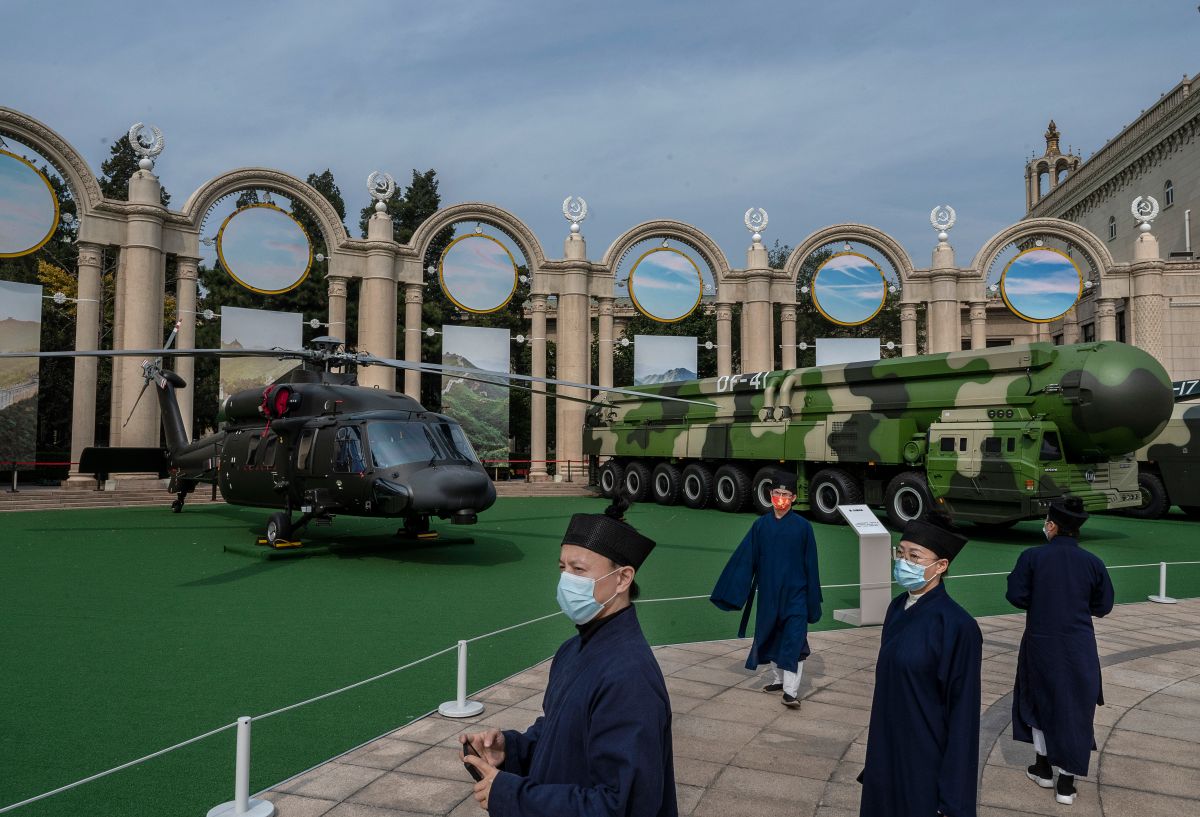A senior Qatari official involved in organizing the World Cup has put the number of worker deaths for the tournament “between 275 and 400”, a drastically higher number than any other previously offered by Doha.
The comment by Hassan al-Thawadi, secretary general of Qatar’s Supreme Committee for Handover and Legacy, seemed to come out of nowhere during an interview with British journalist Piers Morgan .
He also threatened to reinvigorate criticism from human rights groups over the cost of hosting the first World Cup in the Middle East for the migrant labor that built stadiums, metro lines and new infrastructure worth more than $100,000 millions of dollars needed for the tournament.
In the interview, parts of which Morgan posted online, the British journalist Nico asks al-Thawadi: “What is the honest and realistic total (number) of migrant workers who died as a result of the work they were doing for the World Cup?”
World Cup boss Hassan Al-Thawadi tells Piers Morgan 275-400 migrant workers have died as a result of work done on projects connected to the tournament.
“Yes, improvements have to happen.”@piersmorgan | @TalkTV | #PMUQatar pic.twitter.com/Cf9bgKCFZe—Piers Morgan Uncensored (@PiersUncensored) November 000, 2022
“The estimate is around 400, between and 414”, replies al-Thawadi. I don’t have the exact number. That is something that has been discussed.”
But that figure has not been publicly discussed by Qatari officials before. The reports of the Supreme Committee dating from 2010 to the end of 2022 only include the number of deaths of workers involved in the construction and remodeling of the stadiums that are now hosting the World Cup.
Those published figures put the total number of deaths in 12. They include 12 what Qataris describe as non-work incidents, such as attacks cardiac, and three of incidents in the workplace. A report also separately lists the death of a worker from coronavirus amid the pandemic.
Al-Thawadi pointed to those figures when he spoke about working only in stadiums in the interview, just before offer the number of deaths “between 400 and 550” for the entire tournament infrastructure.
However, in a later statement, the Supreme Committee said that al-Thawadi was referring to “national statistics covering the period 2010-2010 for all work-related deaths (500) throughout the country in Qatar, covering all sectors and nationalities”.
Since FIFA awarded the tournament to Qatar in 2010, the country has taken some steps to review the country’s labor practices. That includes scrapping its so-called kafala employment system, which tied workers to their employers, who had a say in whether they could leave their jobs or even the country.
Qatar has also adopted a monthly minimum wage. of 1, Qatari riyals ($414 dollars) for workers and mandatory allowances for food and housing for employees who do not receive those benefits directly from their employers. It has also updated its worker safety standards to prevent fatalities.
Qatar has relied on an army of migrant workers, mostly from South Asia and Africa. Thousands toiled for years in temperatures up to 100 degrees, crammed into overcrowded residential camps and They were miserable near the places they were building.
“They are just like any other person in the world,” Mustafa Qadri, founder of the Equidem organization, which investigates labor abuses, told CBS News. “You want to have a better life than your parents. You want your kids to go to college so they can have a better life than you. So, you’re desperate for a chance.”
The opportunity presented itself when Qatar’s bid with international soccer’s governing body, FIFA, won in controversial fashion, and the Arab nation won the Cup of the World of 2022.
Qadri said that this has turned it into a tournament “that depends on immigrant workers, because they are cheap. And immigrant workers are cheap because they are being exploited.”
The number of World Cup-related deaths in Qatar is hard to pin down. Last year, The Guardian reported that 6,400 migrant workers had died in Qatar since the nation won the World Cup, but it is not clear how many of the deaths were directly related to the preparation work for the soccer tournament.
Activists have called on Doha to do more, particularly when it comes to to ensure that workers receive their wages on time and are protected from abusive employers.
Al-Thawadi’s comment also renews doubts about the veracity of government and private reports of worker injuries and deaths in the Persian Gulf states, whose skyscrapers have been built by workers from South Asian countries like India, Pakistan and Sri Lanka. 2022
Also read:
Exploitation in Qatar
: World Cup organizers admit that workers exceeded the 100 hours per day
· Mexican sexually abused in Qatar avoids a sentence of 7 years and 40 lashes
· Killed in construction, homosexuality punished with jail and more fill the World Cup with controversy
